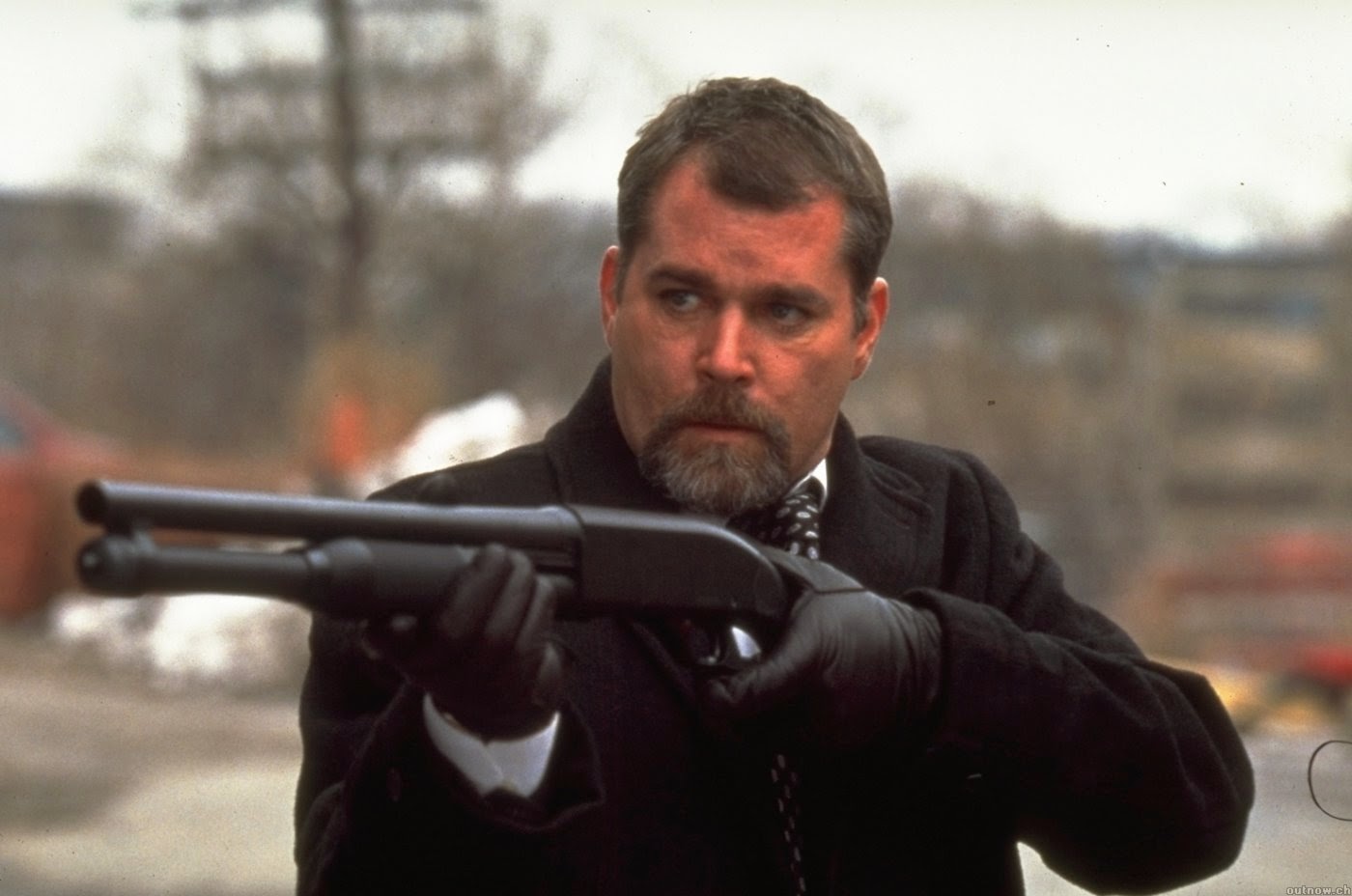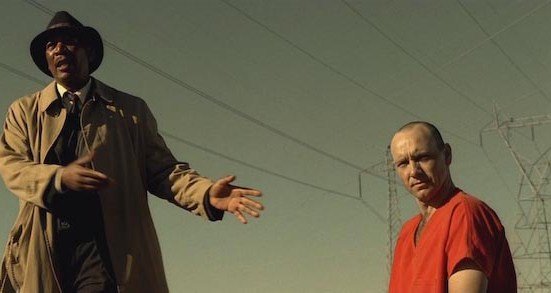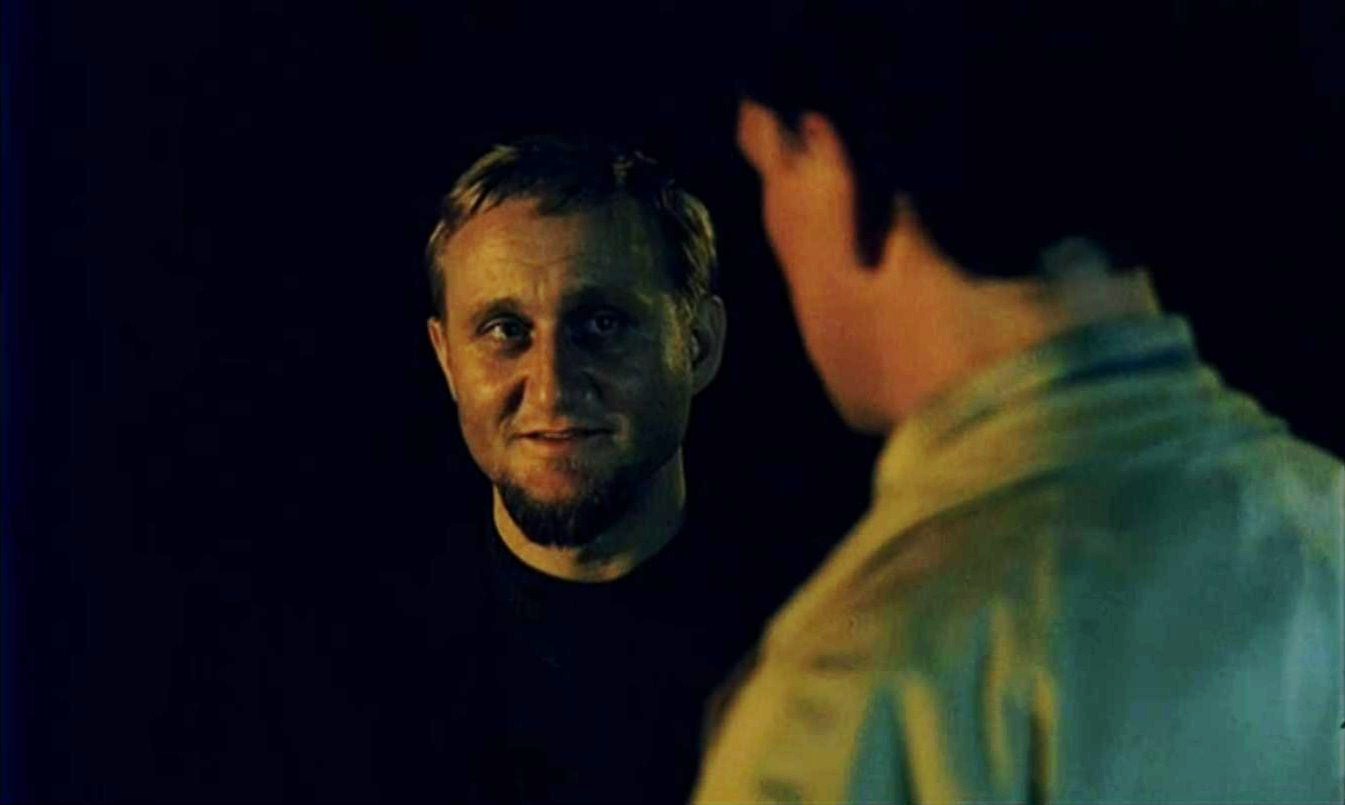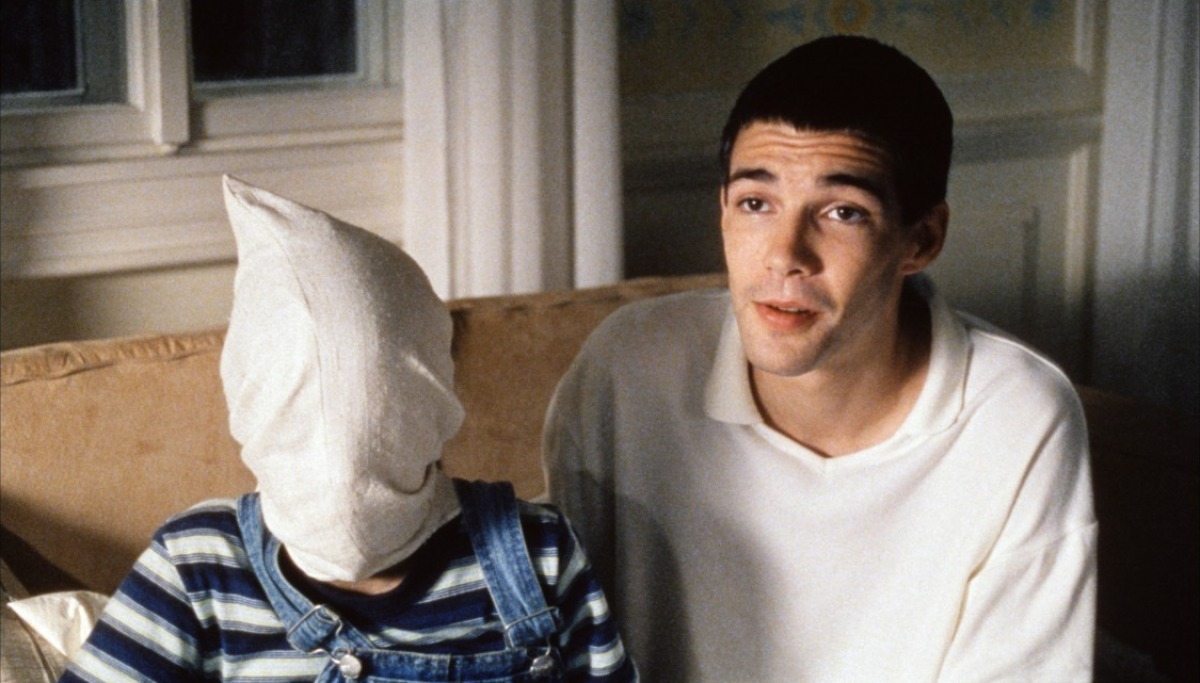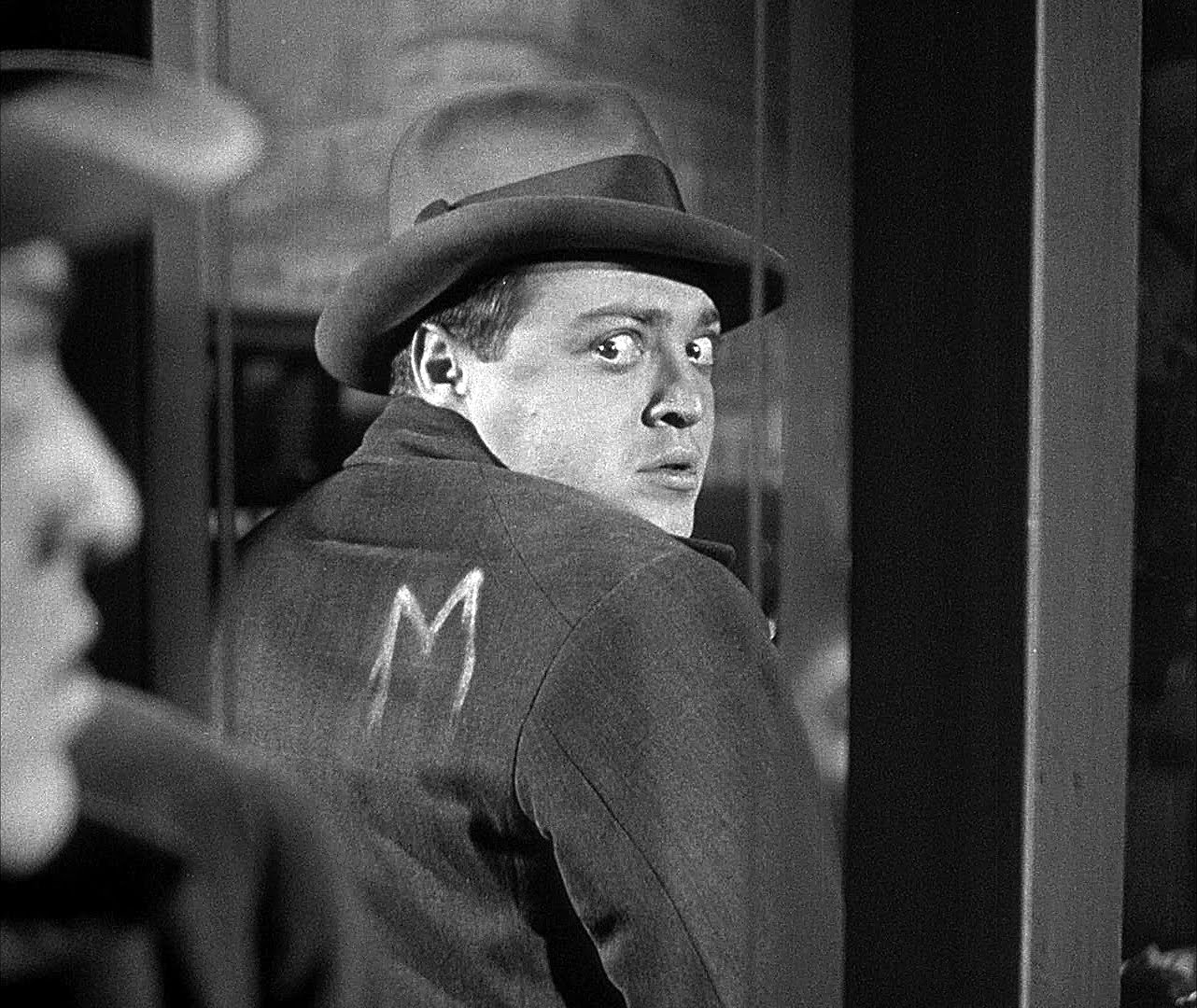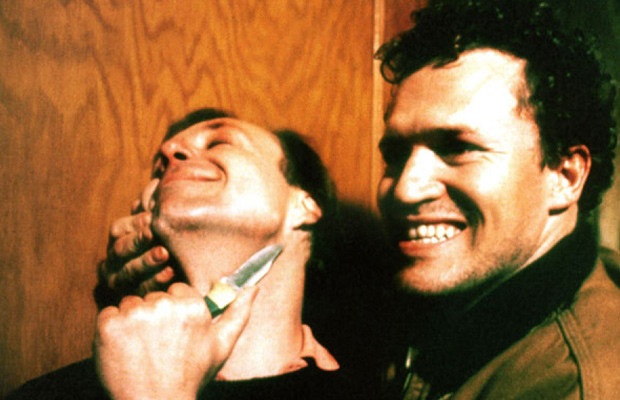8. Narc (Joe Carnahan, 2002)
Joe Carnahan’s gritty dark police drama is as bleak as its setting – Detroit during the winter. The story starts months after undercover narcotics officer Nick Tellis (Jason Patric) was released from the force after accidently shooting a pregnant woman who miscarried.
Even though he is no longer with the force, he is asked to investigate the murder of another undercover narcotics officer. He agrees, but only if he can have a job if he gets a conviction and he wants to be teamed with an unstable but driven detective named Henry Oak (Ray Liotta).
Together they go looking for the killer of the undercover officer. The problem is that Oak is more sadistic and brutal than any criminal they come across and Tellis knows that he is hiding some secrets that are quite possibly connected to the death of the officer that they are investigating.
In the world of Narc, lies and illusions are more comforting than the truth. The lie is that the cops are the good guys and the drug dealers are the bad guys. Therefore, the drug dealers murdered the officer. But after just a little prodding, Tellis finds out that everything below the surface of the story is rotten.
7. Se7en (David Fincher, 1995)
David Fincher’s serial killer classic, Se7en, follows two detectives – Mills (Brad Pitt) and Sommerset (Morgan Freeman). Mills is new to the crime-ridden area and eager to work. Sommerset is jaded and just days away from retirement. They immediately butt heads when they work on a case where it appears that an obese man was forced to eat until his stomach burst.
Sommerset soon realizes that another gruesome slaying in the city is connected to the obese man and it looks like they are connected through the seven deadly sins.
Everything about the Se7en, especially the weather, is gloomy. The only time the sun is visible is when the characters are all heading to the climax that John Doe (Kevin Spacey) has planned for them. It’s a haunting ending, even if Brad Pitt’s acting wasn’t exactly great.
6. The Vanishing (George Sluizer, 1988)
This Dutch film is about a young couple named Rex (Gene Bervoets) and Saskia (Johanna ter Steege) who are on vacation in France. When they stop to get some gas, Saskia seemingly disappears into thin air. Over the next three years, Rex becomes obsessed with finding her.
During that time, the kidnapper taunts Rex by sending him postcards, telling him to meet him at a café. Rex shows up each time, but the kidnapper always stands him up. Desperate, Rex goes on national television and begs the kidnapper to contact him. All he wants to know is what happened to his beloved and he promises he won’t go to the police.
Meanwhile the kidnapper, Raymond (Bernard-Pierre Donnadieu), is watching and is fascinated by Rex’s determination to find out what happened to Saskia, so he approaches Rex and offers to tell him. When Rex follows him, he learns the real depth of human evil and indifference. The Vanishing is a slow burning film that pulls the audience in, only to break their heart.
5. Bad Lieutenant (Abel Ferrara, 1992)
In Bad Lieutenant, there is plenty of drug use, drug trafficking, sexual assault, illegal gambling, and drinking and driving; all of which is done by the main character, an unnamed NYPD Police Lieutenant played by Harvey Keitel. The movie spans a few days in the life of the Lieutenant and most of the time he’s drunk or high.
During that time, he keeps doubling down on the Mets even though they keep losing. Besides just committing crimes, making risky gambling decisions and getting wasted, he also investigates the brutal rape of a nun in a church by two young men. The crime seems to have an effect on the Lieutenant and he tries to change his life around, but is it too late?
The film is a dark and unrelenting character study about a man who is one of the most deplorable criminals in the film. The only crime that is worse is the crime at the heart of the movie – the rape of a woman that made a vow of chastity to honor God. By the end of the film, no one is better off, except maybe the NYPD police force.
4. Funny Games (Michael Haneke, 1997 & 2007)
This movie was written and directed by Michael Heneke and released in 1997. Then 10 years later, he did a shot-for-shot remake in English using Hollywood actors. Both of them are equally rough to watch.
On a beautiful summer day, George (Ulrich Mühe/Tim Roth) and Ann Farber (Susanne Lothar/Naomi Watts), their son, and their dog drive to their lake house. Shortly after arriving, two young men who are dressed in white and wearing golf gloves named Paul (Arno Frisch/Michael Pitt) and Peter (Frank Giering/Brady Corbet), come to the house asking for eggs.
The exchange quickly gets violent and Paul and Peter take the family hostage. Then they force the family to play sick and degrading games. Paul also wants to make a bet with the viewer – will the family still be alive by the morning? He bets they won’t.
Funny Games is a gritty and realistic film about a home invasion and that would be bleak enough, but it gets worse when the film breaks cinematic rules. For example, Paul breaks the forth wall and talks to the audience, usually to taunt them. Then there is the frustrating scene where Peter is shot and Paul uses the remote control to rewind the movie and save Peter. The rules are only broken to ensure that horrible things happen to the victims while the audience watches.
3. A Clockwork Orange (Stanley Kubrick, 1971)
Crime and the people who commit them are the focal point of Stanley Kubrick’s startling masterpiece. In the first half of the film, Alex (Malcolm McDowell) and the droogs commit horrible crimes like home invasions, assault, rape and murder. Then in the second half of the film, after receiving aversion therapy, Alex is the victim – he’s left homeless and beaten a number of times. So at different points in the film, Alex is both the victim and the victimizer.
Even with the therapy, what does Alex learn by the end of the film? Absolutely nothing because as the film closes Alex is looking forward to more sex and violence, which shows that the deepest and darkest urges of human will never go away, but it also asks the question, should they?
2. M (Fritz Lang, 1931)
One of the darkest movies on the list also happens to be one of the oldest. Released in 1931, this German film is about a child serial killer that is on the loose. Things are tense in the town and even the criminals want the killer caught because the police are on high alert looking for him. So the criminals in the town try to track down the murderer and bring him to justice.
One aspect that makes M so depressing is the creepy performance by Peter Lorre as serial killer Hans Beckert. He’s a pathetic little man who knows that he’s sick, but yet he chose to indulge in his horrible urges which robbed three girls of their lives and stole a daughter/sister/granddaughter/cousin away from three families.
What also makes M one of the bleakest crime movies is that usually in a crime film when the killer is caught or killed there is a sense of relief. But when Hans Beckert faces justice, the victim’s families know that nothing will ever change the fact that the girls are gone and are never coming back.
1. Henry: Portrait of a Serial Killer (John McNaughton, 1986)
Henry: Portrait of a Serial killer is based on the real life crimes of drifter and serial Henry Lee Lucas and his sometime accomplice Ottis Toole. The movie has no real storyline; it basically follows Henry (Michael Rooker) and Otis (Tom Towles) as they randomly kill people for pleasure. This includes a haunting scene where they murder a whole family with their bare hands while videotaping it.
During the film, Henry also seemingly grows close to Otis’ sister Becky (Tracy Arnold) and for a while the three very damaged people live together. There is hope that Henry may kill Otis to save Becky, which who in turn would save him. But then there is the end, where Henry just throws a suitcase into a pond and drives away.
Author Bio: Robert Grimminck is a Canadian freelance writer. You can friend him on Facebook, follow him on Twitter, or visit his website.
